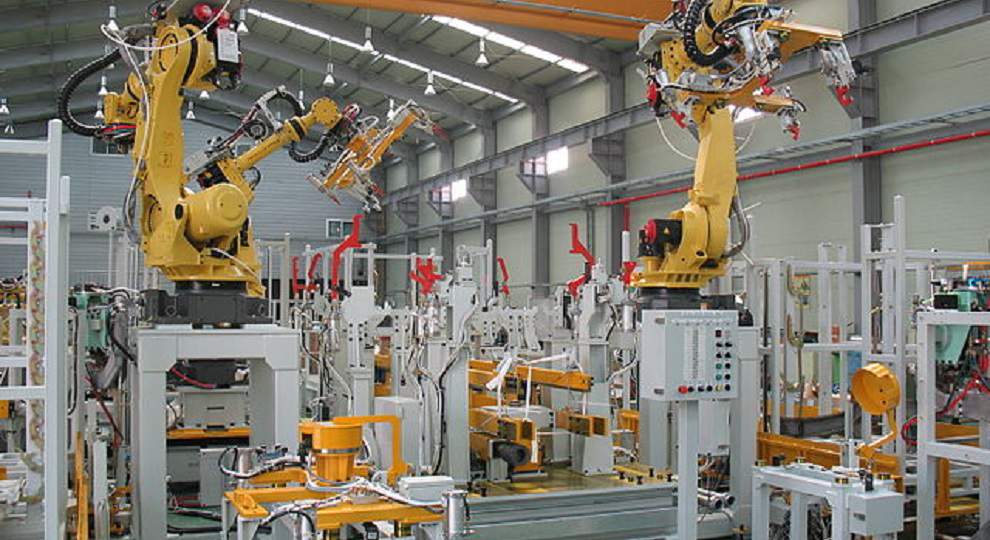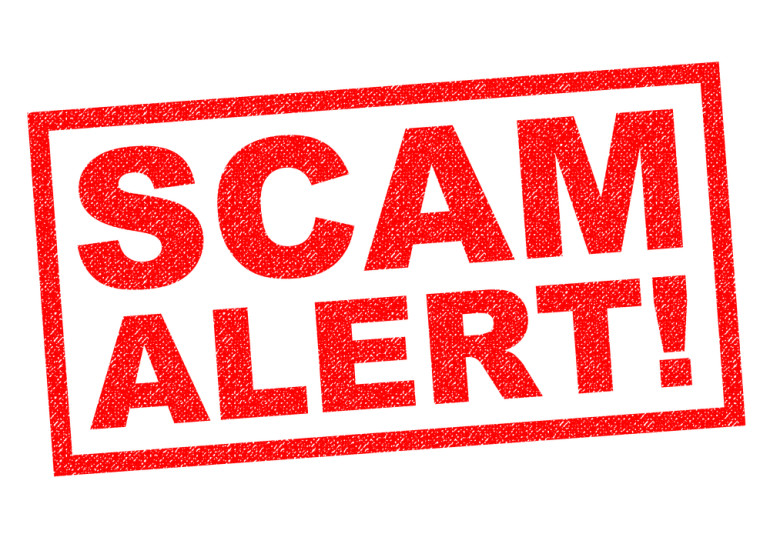The Top 5 Things to Look for When Vetting an Outsourcing Partner in China
This article was written by Gary Almond, the CEO and founder of Almond Global. Almond Global helps US based businesses navigate the outsourcing process in China. True to their tagline "We're in China so you don't have to be!"

Most online sellers have either sourced products or thought about sourcing products in China at one time or another. It’s impossible to get around it since China produces a major portion of the world’s goods. The allure of low-cost products is the driving factor in choosing to source products in China for most e-commerce sellers.
However, the complexities of working with suppliers in China has kept a lot of smaller companies and online sellers from being able to take advantage of what China has to offer.
Distance and time differences, language barriers, lack of knowledge of Chinese business practices and culture, along with the sheer number of choices of suppliers, makes it nearly impossible to do business in China for them.
It doesn’t help when you read horror stories online about the shady business practices of some less than reputable suppliers. While there is no 100% guarantee (other than direct experience with a supplier) that assures you won’t have any problems, there are things you can do in preparation to select an outsourcing partner to manufacturer or supply your products.
This post looks at the Top 5 things you should look for and be aware of when trying to select a supplier or outsourcing partner for your products in China. The primary focus is on manufacturers that you would select to make or buy your products in bulk.
Whether you are buying existing products from a manufacturer’s catalog or private labeling a product or even having a custom product made, your choice of suppliers requires careful consideration. It is necessary to be cautious to avoid not getting what you thought you were paying for, or worst case, scammed. These steps will help you to look for warning signs. It pays to be skeptical and to carefully consider the information you gather.
In no particular order:

Image credit: WTF Finance
Sometimes it’s hard to tell if you’re talking directly to a manufacturer with hundreds of employees, production equipment, warehouse facilities or if you’re talking to one guy working out of his home. It’s hard to tell but it’s important to know since a manufacturer has the capability to build your product, but an individual or small company can only buy products and offer to sell them to you.
This in and of itself is not a big problem, but you will pay for the trading company’s markup and they may not be able to keep up with your supply requirements. They too must find a factory to build your products and probably don’t understand the details as well as you.
Also, if something goes wrong, a manufacturer usually has the means to correct a problem whereas a small trading company may not have the funds or clout with the factory to solve problems that might come up.
Again, working with a trading company is not a big problem, and they could be completely legitimate, however, it’s important to know exactly who you’re dealing with. I would say there are a lot more scammers operating as trading companies than as manufacturers. I have no proof or statistics of this, but it just stands to reason that it’s much easier to appear legitimate than it is to actually be legitimate.
One of the signs that helps to differentiate the two is to look at their catalogs. A manufacturer usually offers similar products across their product line, since their production capability is geared for a particular type of product, it stands to reason they produce this kind of product.
A trading company on the other hand may offer gadgets from one manufacturer, widgets from another one, and something completely different from yet another one. This is easily seen from their product listings on Alibaba or similar platforms.

There are ways to check if a company is legitimate or properly licensed, has the required certificates, etc. This is another way to determine if the manufacturer is real or just putting up a front. In China, legitimate businesses must have a business license.
You can ask to see theirs and make sure the name on the license is the same on the factory or correspondence you may receive. There are government websites where you can check online to verify these things.
Businesses based in China are also required to have a registered bank account. You can ask for this information and verify that the name of the account is the same as the factory.
Other things like product and manufacturing certifications through industry associations or standards organizations can also usually be verified online. If the company claims some QMS (Quality Management System) certification, such as the ISO 9000 series of certifications, these can be verified with the issuing organization.
This may be important if your product is required to meet certain standards before being able to be sold in your country (or possibly even imported due to your country’s customs requirements).
Alibaba has introduced certain vetting services over the past few years, but nothing is as effective as actually visiting the factory in China. You may not have the time or expertise to conduct this type of inspection, but there are companies that provide factory audits and issue detailed reports. More on this later.

The best way to determine this is to actually visit the factory. Again, for many small businesses or online sellers this may not be feasible. Also, do you have the experience or knowledge to know what to look for or what to ask? How can you tell if you received a truthful answer?
Having a professional conduct an audit is the best way to determine if this is a legitimate company. There are stories (personally uncorroborated) of factories that appear to be legitimate only to have been made to appear that way.
Changing company names on signs and having meetings away from the factory after a tour of an unrelated factory are a couple of the stories I’ve read about.
During a factory visit, you can see firsthand the production floor. Does the supplier have the right equipment? Is there a process in placement to prevent mistakes? What about employee work conditions? You should talk to the factory management and determine if they are qualified to run the plant and their approach to quality management.
Observe the quality inspection area. Is it organized? Is the equipment in good repair or properly calibrated? What about raw materials in the warehouse? Does it appear they have proper systems in place to track the materials and manage when new supplies should be ordered? Check out the finished goods storage location. Is it organized? Does it ensure the products will not be damaged or lost?
There are many different things to check, so make sure you allot enough time (maybe a couple of days). Always be aware of red flags that help you determine if this supplier is both legitimate and can produce your products efficiently and with the quality you expect.

Usually we think of ordering samples to get an idea of the overall quality of a supplier’s products. However, don’t overlook that this is another opportunity to gauge the manufacturer’s ability to produce your product or provide more evidence of their ability to conduct business with you to your satisfaction. Any chance you have to evaluate a company and look for red flags will save you a lot of pain and disappointment later on.
Samples are not cheap. Don’t expect the manufacturer to give them away. Make sure you order more than just a couple of the products. It’s easy for a manufacturer to handpick the best one or two of a product to send as samples, but this may not be indicative of what you will receive.
You may also consider sending the payment for the samples to their bank. This requires them to give you details about their bank account which lets you check the name and make sure it matches the legal business name. If you hear excuses that the money needs to be sent to another account for any reason, that is a very big red flag.
By using the sample ordering process as a “mini-test”, you don’t risk as much money and you can get a lot of information about working with this manufacturer.

Image credit: Pinterest
Just like anything else you do when you contract for services, you should get everything in writing. You would be surprised the number of people who throw this standard business practice out the window when dealing with Chinese suppliers.
If you use Alibaba Trade Assurance for transaction protection, this is an absolute requirement. Alibaba will not rule in your favor if the discrepancy was not documented. Sometimes a supplier may want to communicate outside of Alibaba using some chat program.
This is fine for communications, but make sure if there are any changes to the requirements that they are properly handled in a binding document. In most cases you have no recourse if you make verbal changes.
Make sure you get a written agreement on all your requirements, not just features or schedules. This can be used to test the product during a pre-shipment inspection. If a product doesn’t meet the requirements that were explicitly written, you have a legitimate claim that can be used to work out a solution with the supplier.
These are just some ideas that will help you when selecting an outsourcing partner or manufacturer. Some of these are beyond the capability of the average online seller both from a practical sense of coming to China (and the associated costs and loss of time) and most online sellers don’t have the knowledge of the manufacturing process or Chinese business culture to make the proper determination.
A factory audit is not necessary in every case, but if you are committing a lot of money to an order, the cost of a factory audit is very small in comparison to the cost of being scammed or by selecting a supplier that can’t do the job properly.
My company, Almond Global, Ltd., offers a number of services (including factory audit services) geared especially for e-commerce sellers, Amazon sellers, dropshippers, and small businesses.
For our factory audit services we go to the factory and do due diligence and observe the manufacturer’s practices, facilities and workforce. We verify their licenses and certifications and at the conclusion we issue a detailed report to you.
Following the steps outlined above will give you a much better chance of finding the right supplier and verifying their ability to produce your products on time and with good quality. Feel free to contact us if we can help or if you have any questions.



